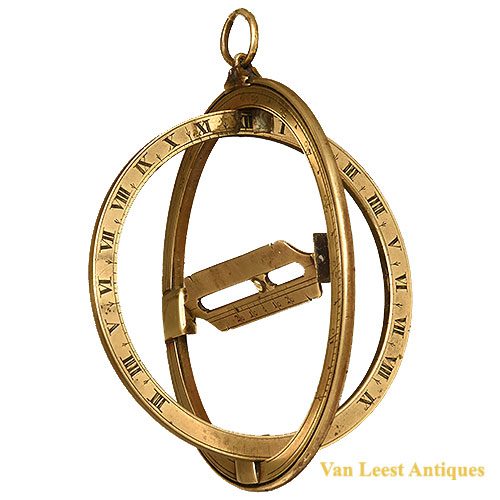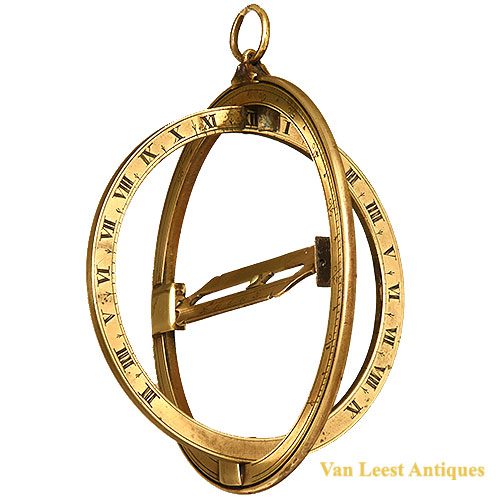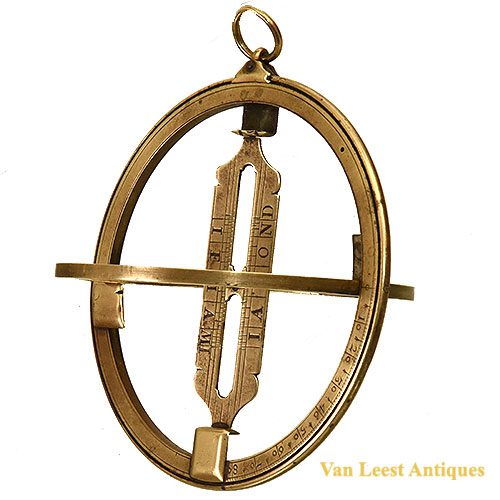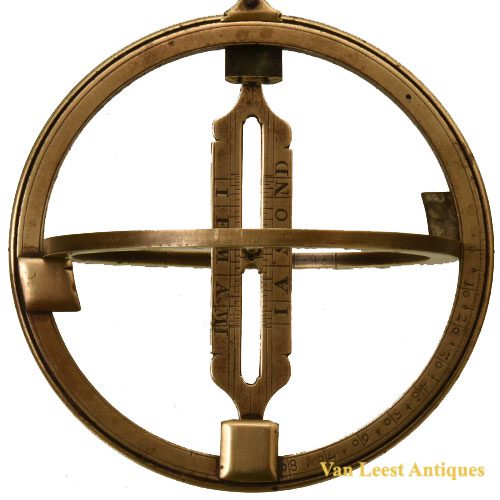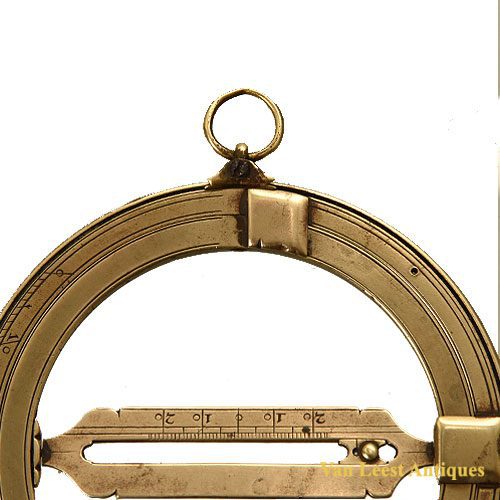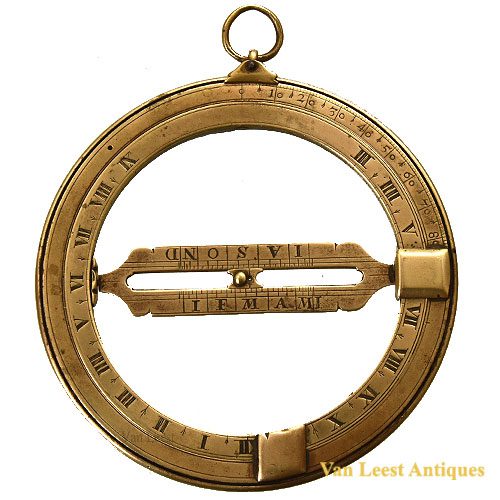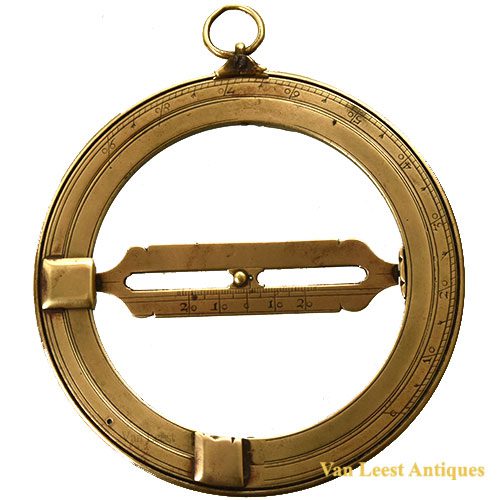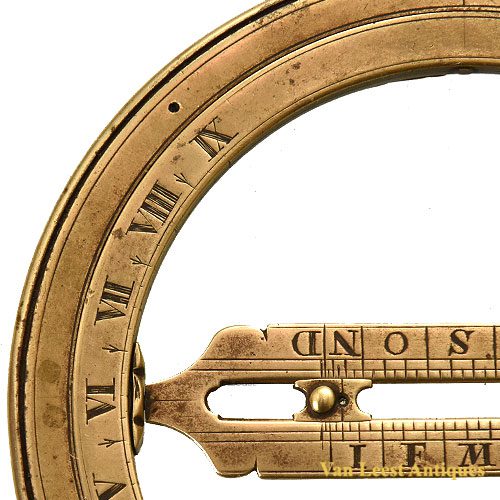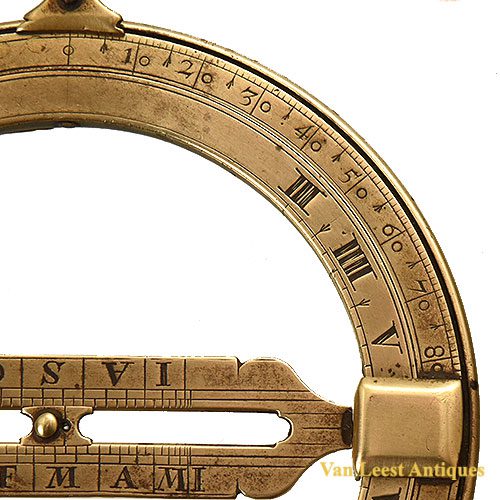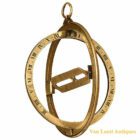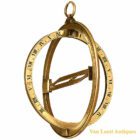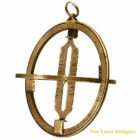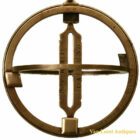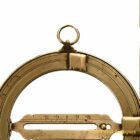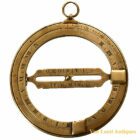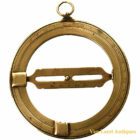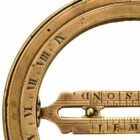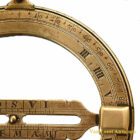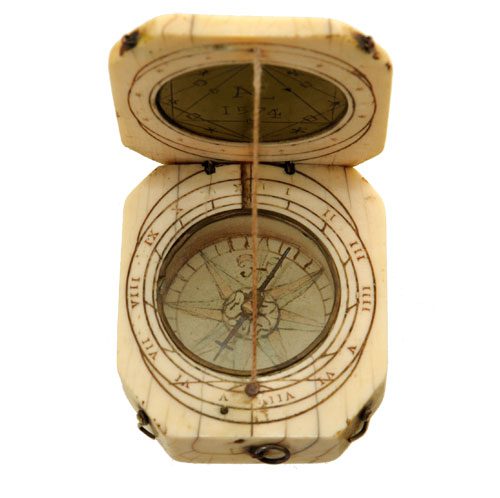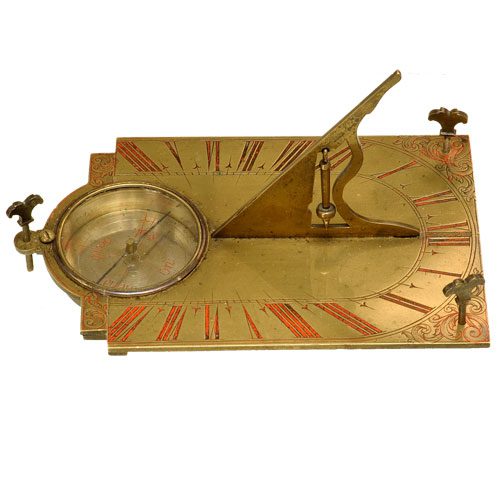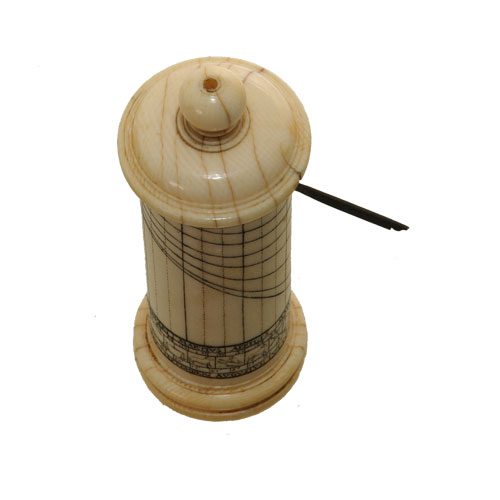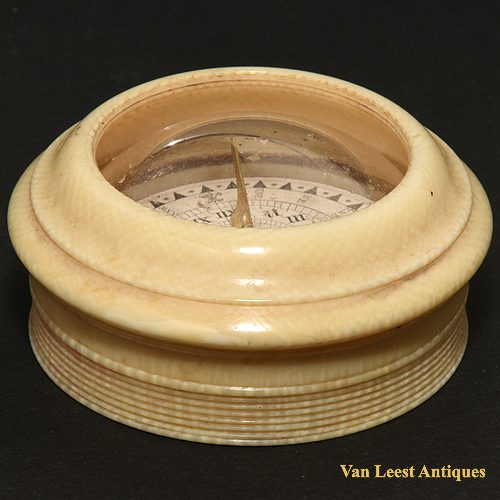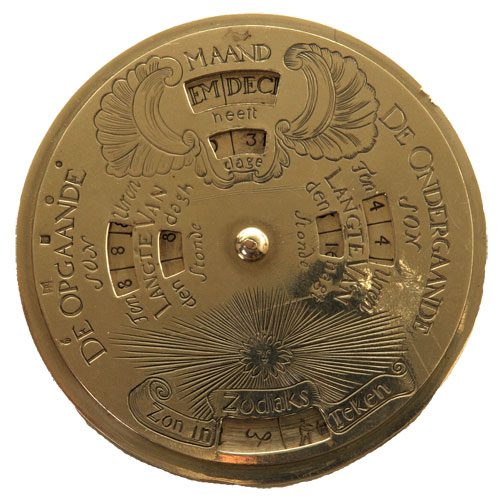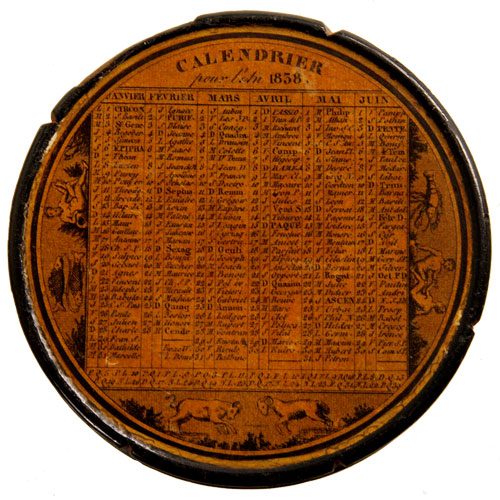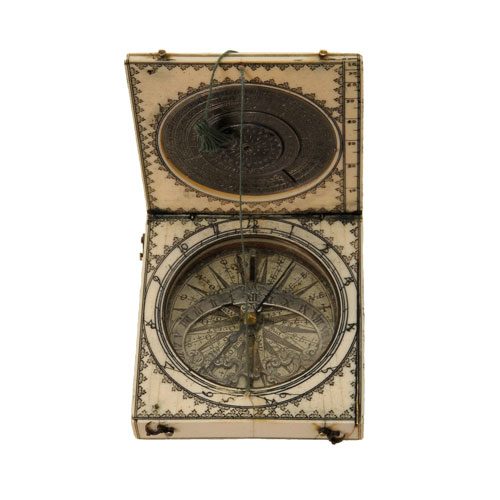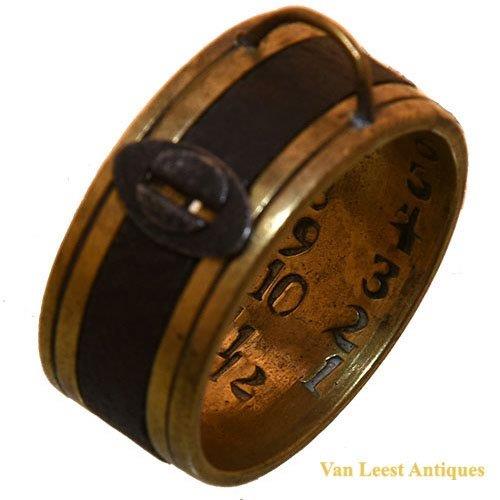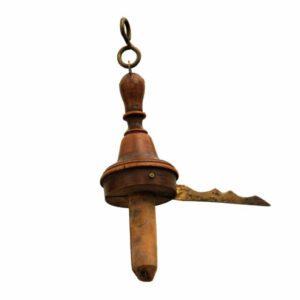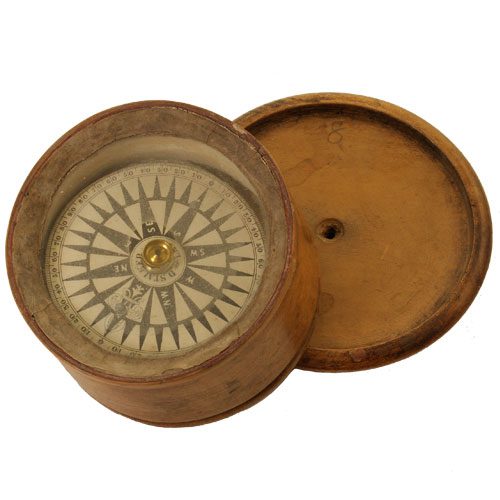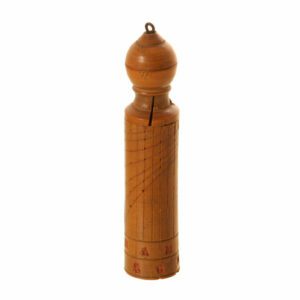Equinoctial ring sundial. 18th C.
On application
A Universal ring dial or Equinoctial ring sundial. An Universal ring dial, first part of the 18th century crafted of Brass 9,2 cm in overall diameter. This is a relatively example of the classic pendant ring dial, useable anywhere on earth and without the need for a compass. Only the date and one’s latitude are needed to determine the apparent solar time and even the North. The latitude can be determined by using the quadrennial degree scale at the backside for measuring the solar meridian altitude. The outer meridian ring is divided from 90º South latitude through 0° to 90º Nord latitude, readable against the index on the sliding pendant ring. It has on the backside the solar altitude scale, with 0-90 degrees, to be used with a shadow-casting straw or pin. The inner hinged equatorial ring is divided every 15 minutes of time, full circle, for twice twelve hours. The central bridge carries the shadow casting pin hold slider, adjustable to the correct solar declination using the date scale and/or the Zodiacal scale and/or the ± 23°,5 scale. The vernal equinox, the first point of the house of Aries, is given an approximately 10 march, consistent with the Julian calendar still in effect in England up to 1752. Condition is very fine, the brass with a fine mellow patina.
